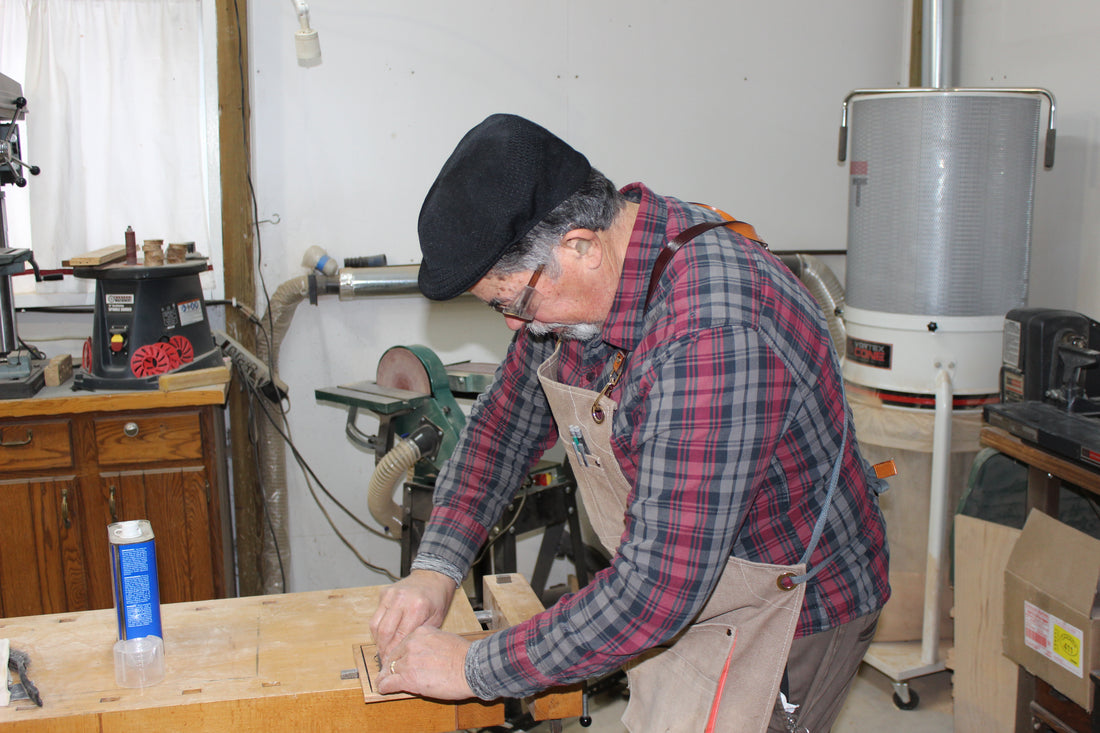
The Fittingness of Wood
"I always like wood," he remarked. "Modern things are made with steel and tin, hard, sharp, cold things without smell. Or worse, there are things of plastic, spineless gooey stuff without character. Wood has personality, it is alive, warm, fragrant..." - Uncle Armand, the veterinarian from Friendly Gables, by Hilda van Stockum
I came upon this quotation the other day while reading aloud to the children. The speaker is a kindly veterinarian from Montreal who carves wooden toys for children in his spare time--one of those trustworthy, charitable characters whose opinion on such things, readers are certain, must be the author's own. I can think of a dozen other influential thinkers and writers who probably have expressed a similar appreciation for wood--Wendall Berry and Maria Montessori both come to mind. But I can't think of a single passage that likewise sings the praises of metal or plastic, brick or stone, ceramic or glass, though they can certainly all be formed into useful, beautiful things. Why does wood alone seem to inspire this kind of affection?
Uncle Armand hints at the point of attraction when he calls it "alive, warm, fragrant"--all qualities that we share with the trees from whence wood comes to us, which allow us to consider it as both a fellow-creature in this world and source of sustenance. Who doesn't love the warm scent of cedar or the fresh whiff of pine? Some primal appreciation stirs inside when we take a moment to notice the unique ripples of the grain in a cabinet door or the handle of a tool. Each pattern is a fingerprint, a subconscious reminder that this quiet, solid thing has grown, has suffered wind and rain, has soaked up sunlight, and has drawn nourishment from the earth just like us.
Perhaps that's why trees feature so prominently in our shared mythology, from Yggdrasil, to Greek dryads, to the Garden of Eden and the Cross of Christ: even rough-cut and splintered, we recognize something of our own journeys in its cycle of life. Sometimes, yes, it is Dante's journey in the middle of a gloomy woods, or the dark and dangerous forest of a fairy tale. In our tendency to anthropomorphize nature, we can experience trees as gnarled and foreboding at times. For they lend themselves as easily to story and symbolism as they do to our saws and sandpaper. In both cases, the creative minds and hands of humans honor these simple, yet mysterious, things by illuminating their beauty.
I suppose that's why we chose a rooted, branching tree for the logo of our little woodshop: it is an image universally acknowledged as a metaphor for all seasons of life. Growing in both directions, ever deeper, ever higher, it inspires me to try to do the same.
“Wood, if you stop to think of it, has been man’s best friend in the world. It held him in his cradle, went to war as the gunstock in his hand, was the frame of the bed he came to rejoicing, the log upon his hearth when he was cold, and will make him his last long home. It was the murmuring bough above his childhood play, and the roof over the first house he called his own. It is the page he is reading at this moment; it is the forest where he seeks sanctuary from a stony world.”
― Donald Culross Peattie
